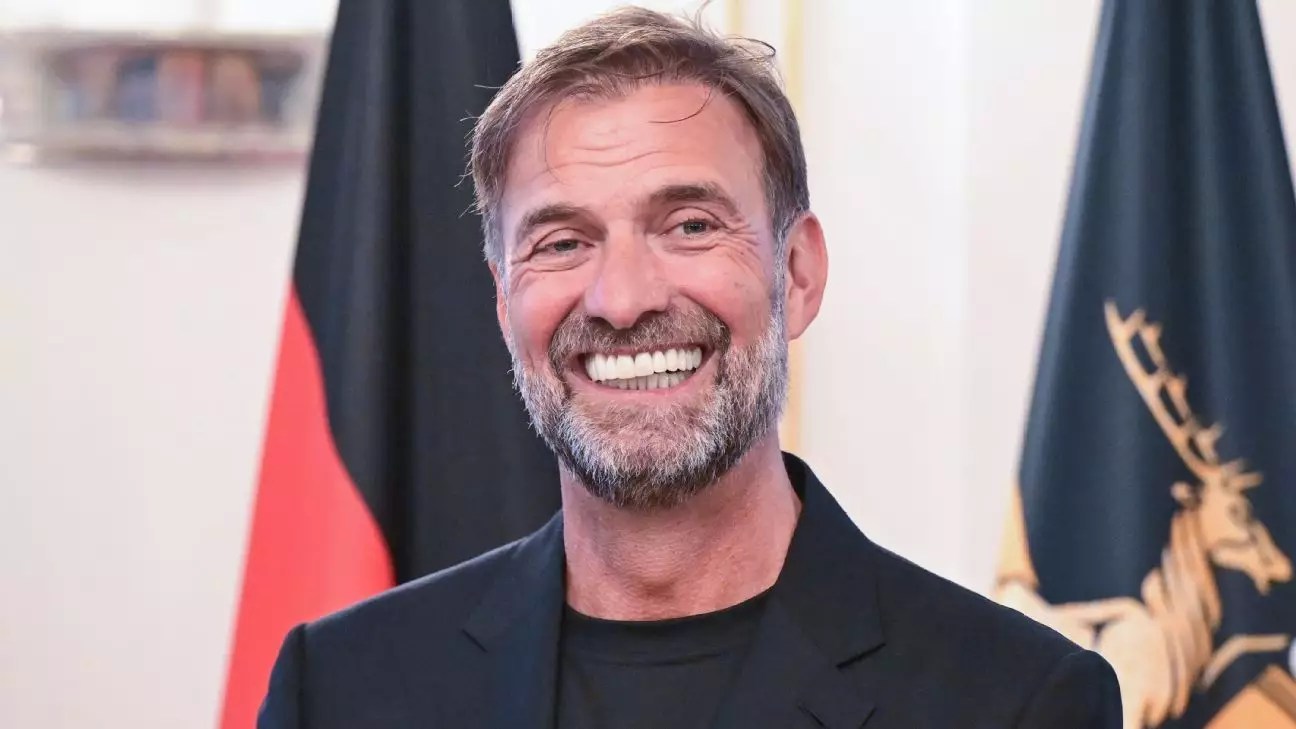Jürgen Klopp, a figure synonymous with passionate leadership on the sidelines, has embarked on an unexpected journey away from the dugout. In a surprising career pivot, Klopp has taken on the role of head of global soccer at Red Bull, a decision that reverberates across the football world. Announced on a Wednesday, this appointment not only signifies a departure from his on-field responsibilities but also positions him as a strategic leader overseeing multiple clubs under the Red Bull banner, including RB Leipzig, RB Salzburg, and the New York Red Bulls. This transition from managing players directly to shepherding an organization’s broad vision showcases Klopp’s versatility and affirms his deep-rooted commitment to the sport.
With his extensive background and considerable reputation, Klopp finds himself tasked with strategic guidance and mentorship of coaching staff within the Red Bull network, along with an integral role in global scouting operations. This new position marks a substantial evolution in his career, one that will require him to adapt his leadership style from a hands-on approach to a more advisory and strategic role.
Klopp’s decision to step down as Liverpool’s manager following a nearly nine-year tenured reign has raised eyebrows and sparked curiosity regarding his motivations. Having led Liverpool to significant victories, including a UEFA Champions League title and a Premier League championship, the physical and mental toll of such achievements were evidently weighing on him. In his emotional farewell, Klopp hinted at struggles with maintaining balance in his life, attributing the decision to the overwhelming pressures of managing a top-flight club. He expressed a need for a break, alluding to a desire to spend more time with his family and recently born grandchild.
Interestingly, Klopp’s subsequent inclination towards a sabbatical was complemented by explorations into vacancies such as the head coach position with the United States men’s national team (USMNT). However, he declined these roles, reinforcing the notion that he was not yet ready to jump back into the intense fray of club management. His continued absence from club-level responsibilities fueled speculation about his future but also highlighted the personal pace with which he wished to navigate life post-Liverpool.
Stepping into the role at Red Bull undoubtedly comes with its unique challenges and opportunities. As he relinquishes the touchline for the director’s desk, Klopp must embrace the dynamics of executive decision-making and the inherent politics that accompany it. Historically, Klopp has distanced himself from the internal workings of club governance, channeling energy toward player development and match strategy. However, by taking on a leadership role within the Red Bull hierarchy, he now finds himself directly engaged in topics he previously delegated to management.
This shift poses an interesting dilemma: Will Klopp, known for his charisma and enthusiasm, find fulfillment in a job that lacks the immediate emotional engagement of coaching? Managing expectations while fostering a supportive culture across the various Red Bull clubs might be precisely the challenge he needs. Yet, it remains to be seen whether this office-bound role will suffice for someone who thrives on the adrenaline of matchdays and engages deeply with players and fans alike.
While Klopp’s present role suggests a temporary move away from the pitch, there are hints that his coaching career may not be on permanent hiatus. There are already whispers regarding his potential interest in managing the German national team, particularly in the lead-up to the 2026 World Cup—a role that many see as a perfect fit for the charismatic manager. His contract with Red Bull reportedly includes a clause allowing him to return to a managerial position should the German Football Association come calling. Given the high stakes of international competition, could Klopp’s new role be merely a stepping stone to an even bigger chapter in his coaching career?
Domestically, Klopp has made it clear he does not intend to take the reins at any rival English club, and the complexities of managing a high-pressure club like Bayern Munich may deter him as well. Yet, the landscape is shifting in European football, and should a top-tier club seek a change in management, Klopp’s phone may ring sooner than anticipated.
In essence, Jürgen Klopp’s move to Red Bull encapsulates both a rewarding opportunity and a potential bridge back to competitive football. As the 2026 World Cup approaches, speculations will undoubtedly grow surrounding his future, and the football world waits with bated breath to see if Klopp’s reign at Red Bull signals a longer-term strategic stay or a brief intermission before a triumphant return to the touchline.


Leave a Reply